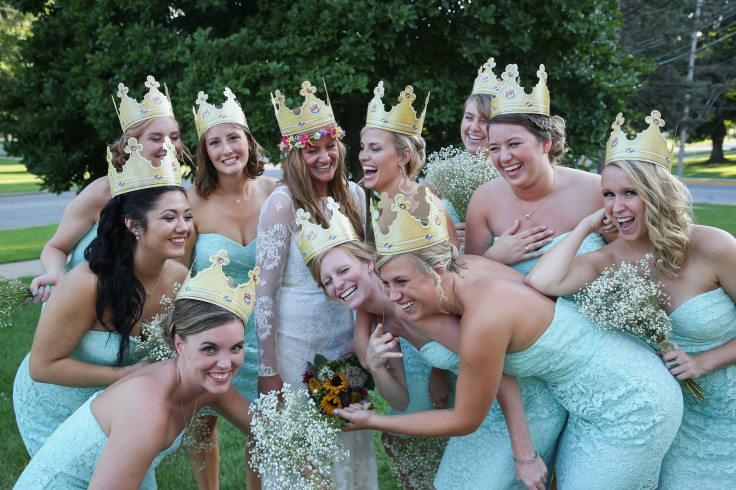Study: Unmarried Women Are More Liberal, More Likely To Initiate Divorce

Unmarried women tend to be more liberal because they are concerned with the collective success of all women, a study released Saturday at the American Sociological Association meeting found. "Over 67 percent of never married women and 66 percent of divorced women perceive what happens to other women as having some or a lot to do with what happens in their own lives," Kelsy Kretschmer, an assistant professor of sociology at Oregon State University and one of the co-authors of the study, said in a press release. "Only 56.5 percent of married women hold the same views.”
What these results show is that women who were never married or who were divorced have higher levels of “linked fate,” the idea that individual success relies on the success of a group, the study found. The difference in levels of linked fate in married and unmarried women explain part of why there is such a quantifiable difference in political affiliation, Kretschmer said.
This concern for women’s rights tends to align more with Democratic politicians and party stances as it “could encompass things such as wage equality, workplace protections for pregnancy and maternity leave, anti-domestic violence laws, and welfare expansion. Not every individual woman needs these things, but women who have a strong sense of gender-linked fate will think in terms of how women as a group will benefit from them,” Kretschmer said.
This is not a new phenomenon. In the 2014 election season, Democrats lobbied single women to get a higher rate of voter turnout from what is widely held to be one of their strongest support bases, the New York Times reported.
In 2012, two-thirds of unmarried female voters supported President Obama, and married women supported Mitt Romney by a slim margin, the Times said.
The study also found similarities between the levels of linked fate in married and widowed women. Widowed women “may still be receiving their husbands' pensions, Social Security or health benefits. In other words, despite not having a husband, many widows are still engaged in the marriage institution in ways that make them more like married women than never married or divorced women,” Kretschmer said.
But women are also more likely to initiate a divorce. A separate American Sociological Association study, which also was presented at the 110th Annual Meeting of the ASA Saturday, found while men and women are statistically equal in likelihood to end a nonmarital relationship, women initiated a divorce 69 percent of the time in the group studied.
The study’s author, Michael Rosenfeld, found women appear to “have [had] a predominant role in initiating divorces in the U.S. as far back as there is data from a variety of sources, back to the 1940s,” the study found.
Rosenfeld said his results support the feminist claim some women consider heterosexual marriage to be oppressive. He suggested women are more likely to initiate divorces because, as he found, married men reported higher levels of relationship quality than married women, contrasted with women and men in nonmarital relationships, who reported equal levels of relationship quality.
© Copyright IBTimes 2025. All rights reserved.






















